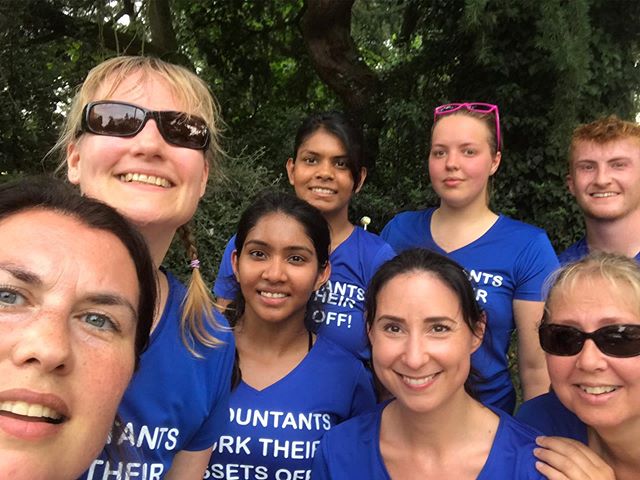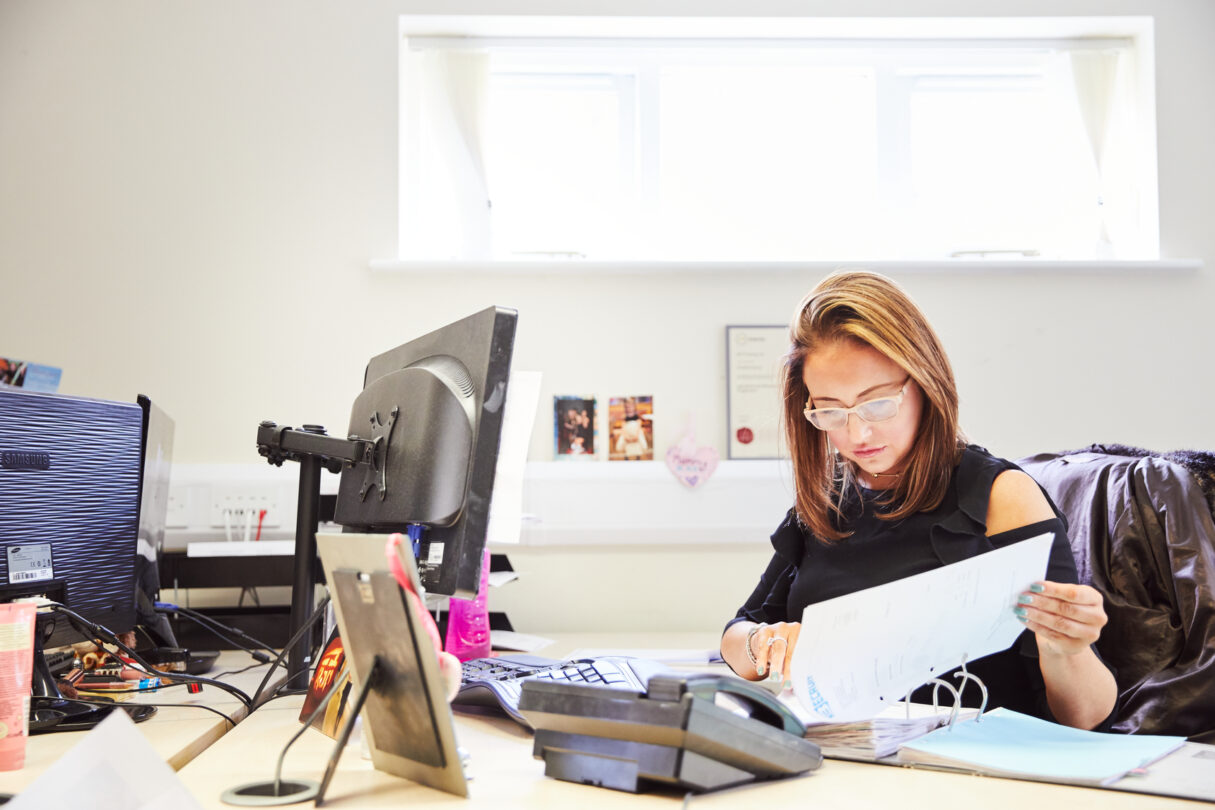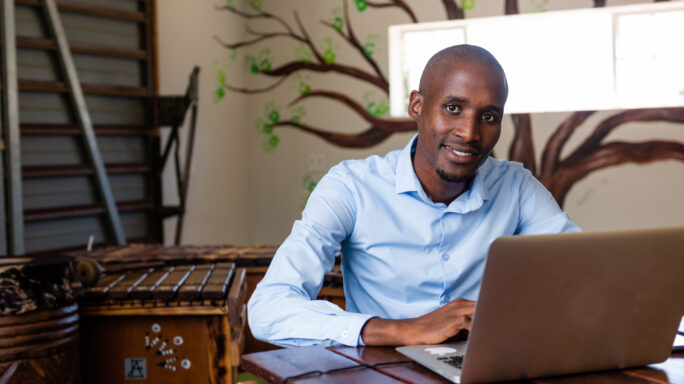Strategy, Legal & Operations
Goringe Accountants: ‘Video pitches and remote audits are expanding our market’
The founder of Goringe Accountants talks about how her practice is dealing with the coronavirus outbreak and supporting clients.

In our Your Story series, we speak to business owners about the challenges they’re facing and the steps they’re taking to overcome them. Nicky Larkin is the founder of Goringe Accountants, with offices in Reading and Kensington, London. She shares how to uncover the hidden opportunities and rewards for accountants who are open to embracing change.
Resilience means adapting to change and this attitude has served our practice well since it was founded in 2007.
Our main office in Reading is on a flood plain, so we’ve had a handful of rehearsals for compulsory homeworking.
Although the flooding was horrible, it was also a blessing in disguise because it means we were able to tackle coronavirus (COVID-19) with fully tested and resilient contingency plans.
I embrace change.
I’m always exploring new avenues for the practice, and new sectors we can get into.
But while our staff are proactively developing the skills to get used to change as an ongoing concept, it’s not something all accountants are necessarily always good at.
Building resilience and embracing change has allowed us to grow as a practice. But in light of current events, it’s proved prescient and will become key in the coming months and even years for practices such as ours.
Go above and beyond to protect and retain your clients – put them first
When the severity of the coronavirus disruption became apparent, at Goringe Accountants, we had three main objectives.
The first was to keep all of our staff and their families safe. For example, we started remote working to enforce social distancing before we had to.
Moving forward for the next few months at least, our business model is likely to be a skeleton staff in the office, with everybody else working from home. And we’re even thinking about switching back to cubicles, to replace our existing open-plan office if and when we do go back to the office.
“Building resilience and embracing change has allowed us to grow as a practice”
Secondly, we wanted to make sure all of our clients were OK, and that they would be able to survive this. We phoned around every single one – from those who are fully outsourced to us, to those who might just ask us to do a yearly tax return.
We did this from both a business perspective and also a human one.
We’ve been educating clients about what grants and loans are available, sharing tools such as free webinars, and sending out newsletters. We basically bombarded them with support.
The webinars are available to non-clients too and it’s important to me to provide this help. I also lobby the government on behalf of small businesses.
We’ve provided free services for clients, such as doing furlough calculations. We ask if there’s anything else we can help them with.
This is the wrong time to be billing clients who are struggling. Obviously, this is going to affect our billing position.
But, from a long-term viewpoint, it means our clients are more likely to be around in a year’s time to continue being our clients.
The third step towards resilience was that we wanted to make sure we as a practice come through successfully on the other side.
We realised this would probably be in a different way to how we were operating and thinking beforehand.
We want to come out of this learning positive things to make us an even better practice.

The team at Goringe Accountants have swapped in-person get-togethers for virtual ones
Nurture the resilience not only of your bottom line but of your staff too
You don’t have an accountancy practice if you don’t have staff. The top priority in any event is to look after your people.
But with the recent disruption, this is a key part of our resilience – making sure they’re OK, and then working with them to help them get through this.
There is definitely an emotional cycle to this virus.
Some people have panicked, some are fearful, some are angry, and some are simply stressed or low. It’s been important to look out for those signs for when people are starting to dip.
It’s been about making sure people take out time for themselves, such as ensuring staff take holidays.
And it’s been more important than ever to find different ways to perk up their spirits. Whether that’s sending them a fruit bowl, or having little quizzes among all the staff.
I encourage staff members to share things about themselves and get to know each other more. We’ve had to come together as a group and I think the disruption has made us even closer.
We’ve been having a daily ‘huddle’ meeting on Microsoft Teams and we plan to continue with this in the future, regardless of what happens, because it works very well.
We give daily updates about what’s going on. My leadership style is, I think, pretty strong. Straight away, I knew the direction we had to take and communicated this.
Embrace new norms for client acquisition and business development
When it comes to meeting with clients, even before the disruption, I preferred video conferencing for obvious reasons.
It saves a lot of time and money, and as a working mum it allows me flexibility. But I’ve always found many clients want the one-to-one meetings – a physical face-to-face.
Now that this is essentially impossible, the feedback from these kinds of clients is that, actually, they’re enjoying the video conferencing convenience so much that even after lockdown they want to continue with it.
For us this is good because, without travel times, we can fit in more meetings. If you bill the client for travel time and so on, then this is obviously good for the client too.
“We’ve even managed to undertake remote audits without being physically there in the client offices”
Video conferencing has been good from the business development perspective too – for new client acquisition.
Rather than take two to three hours out of your day to go and have a coffee or lunch with a prospect, you can now just book a virtual coffee meeting for half an hour.
If we can fit eight or 10 meetings into a day when we previously we were only able to fit in two or three then obviously we’re going to continue doing it this way.
We’d previously thought clients should be an hour radius from our offices in Reading or London, at most.
Now, I could be pitching via a video call for clients in Scotland just as much as I should be for those in Cornwall, for example.
The positive, forward-thinking clients see us doing this and realise how it could open up their markets too. We’ve even managed to undertake remote audits without being physically there in the client offices.
My top three takeaways
Here’s what’s worked best for our business.
1. Ensure meaningful communications with staff and clients
It’s easy to believe that if people don’t speak up then they’re fine. But you can’t assume this in the current climate.
People are facing all kinds of pressures, from all directions.
Managers need to actively get out there and check in with their people.
As for clients, it’s about being there and being useful to them in these trying times. This can be significantly easier by using the appropriate tools such as a client management system.
2. Encourage your staff to embrace change
If the new normal means anything, it’s that change and adaptation are now big things in everything we do. This isn’t easy for accountancy as a profession, which perhaps leans towards being conservative, but even before the crisis this was good advice.
Increasingly, powerful technology is bringing a wave of change that’s creating new opportunities.
3. Admit that radical changes might be required for the long term
To enforce social distancing, for example, we’re considering switching to a cubicle-style office. What’s becoming increasing obvious is that there will be no return to things the way they were.
Things are going to be different for months, if not years, moving forward. This will require what might have once seemed radical changes in order to allow everything to continue.
Nicky Larkin was talking to Sage Advice’s Keir Thomas-Bryant.
Want to share Your Story?
If you'd like to tell your business story on Sage Advice and share how you've overcome challenges, send us your details to learn more.








Ask the author a question or share your advice